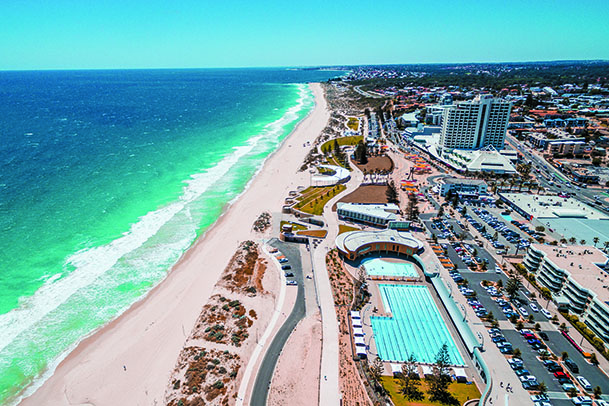Seven leaders who built WA's resources industry
Harnessing the enormous mineral and petroleum wealth of WA required leaders willing to drive innovation and take risks. We profile seven of the most important.
A PDF version of the full Great for the State series liftout
Lang Hancock
Legend has it that Lang Hancock discovered iron ore while flying a plane through Turner River Gorge in the Pilbara.
But Mr Hancock’s efforts extend beyond mere chance.
He successfully lobbied to lift the federal government’s embargo on iron ore exports, and the state government’s ban on pegging of prospects.
Those two contributions set the stage for Western Australia to be an iron ore superpower.
Mr Hancock was a key dealmaker in the industry, including working with Peter Wright and Rio Tinto to build the first iron ore mine in WA.
However, there was controversy about his earlier work founding a blue asbestos mine in Wittenoom.
Alan Bond
Photo: Wikimedia Commons
England-born Alan Bond was a high-profile businessman who served time in jail in the 1990s after his Bond Corporation collapsed.
Despite the controversies, one series of deals changed the face of Kalgoorlie.
In 1988, Bond took control of the tenements on the Golden Mile and created the famous Super Pit.
Underground mining operations were phased out, and the pit became perhaps the best-known gold mine in the world, eventually reaching 3.5 kilometres long, 1.5km kilometres wide and 600 metres deep.
The Super Pit has produced about 20 million ounces of gold during its operational life.
CY O’Connor
Irish engineer Charles O’Connor was a visionary, developing two major projects that enabled the resources industry in WA – Fremantle Harbour and the Goldfields Water Supply Scheme.
On the port, Mr O’Connor succeeded against previous advice that the location, at the entrance to the Swan River, would be impossible to use.
The pipeline was constructed despite considerable opposition in the media and from politicians, and allegations against Mr O’Connor personally.
The 530-kilometre pipeline has eight pumping stations, and opened up the state’s Goldfields to development.
Charles Copeman
Photo: Mannkal Economic Education Foundation
When WA’s iron ore mining industry was on the verge of crumbling from industrial relations pressure in the mid 1980s, Charles Copeman stood up against vmilitant unions and set the sector up to be the nation’s breadwinner.
As chief executive of Peko Wallsend, which held a third of the Robe River iron operation, Mr Copeman took the mine from a money loser to profit, with productivity trebling.
Mr Copeman sacked 1,100 workers, re-hiring half in a move opposed by state and federal Labor governments at the time.
The drastic action helped achieve a better balance between worker output and compensation structures.
Geoff Donaldson
In 28 years as chairman of Woodside Petroleum, Geoff Donaldson led the company that developed what was at the time Australia’s largest ever private investment – the North West Shelf Venture.
Mr Donaldson was famously effective in finding capital to keep the-then small listed company afloat from the start of his tenure in 1956.
Woodside discovered the North Rankin field in 1971.
In the 1980s, Woodside signed on eight Japanese customers to offtake gas from North West Shelf, and worked with Shell to raise money from international banks for the project.
The final investment decision for the first two LNG trains was made in 1985, not long after he retired in 1984.
Sir Charles Court
Photo: Liberals WA
As WA premier from 1974 to 1982, and as an influential minister for a decade prior to that, Charles Court was vital in the development of the iron ore, bauxite, mineral sands and LNG industries.
Sir Charles was behind the deal that underpinned the North West Shelf Venture gas development, a domestic gas offtake which lasted 30 years.
He also negotiated to ensure WA would keep most of the royalties from the project, and built the gas pipeline from Dampier to Bunbury.
The state agreements for the Pinjarra alumina refinery, Argyle diamond mine, Robe River iron ore and Hamersley Range iron ore mines are among those that bear his name.
Sir Arvi Parbo
Estonian immigrant and WWII refugee Arvi Parbo held leadership roles in some of the most important mining companies in WA’s development, including Western Mining Corporation, BHP and Alcoa
of Australia.
Early in his career, Sir Arvi played a key role in the development of bauxite resources in Darling Range, working with Alcoa representatives to study feasibility of the project.
He was part of the WA team that inked the deal with US company Alcoa to create the local alumina industry.
His next big role was in nickel, where he worked on the construction of the Kambalda nickel mine and processing plant.
